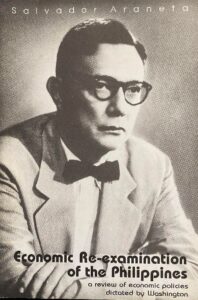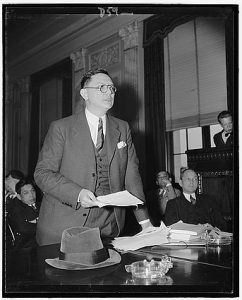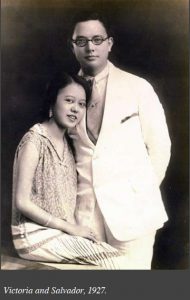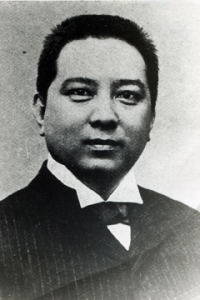Dr. Salvador Araneta
A Voice in the Wilderness
Lina Araneta Santiago
In his introduction of the book on the Bayanikasan Constitution by Dr. Salvador Araneta, Dr. Alejandro R. Roces said, there is something of Pilosopong Tasyo in Araneta. The admonitions of Jose Rizal’s proverbial philosopher and Araneta’s views and ideas were neither understood nor appreciated by the people of their respective eras. Their observations and advice were met with indifference or derision. Their brilliant thoughts were deemed impractical, or worse, crazy.
Roces said that although Araneta‘s Bayanikasan Constitution was addressed to his generation, it was to be used in one to two decades. He said that Araneta’s “plan for tomorrow is ready today, but it is Today that is not ready for his plan for Tomorrow.”
Like Pilosopong Tasyo, Araneta was an ardent student. He was a lawyer, an economist, an educator, a pioneer in aviation and industry, a public servant, and a Constitutional Convention delegate (both in the 1934 -1935 and 1971-1972 Conventions) who also was hard at work in writing down his vision for future generations in a new and an out-of-the-box Constitution.
The time has come when we should look at Araneta’s work, done almost half a century ago, to prepare the Philippines to emerge as a strong and independent nation, a model of democracy, with peace and prosperity for all its citizens. Araneta looked even further to an entire world where the brotherhood of man was a way of living and thinking.
Araneta’s father, Gregorio, taught him that what was most important in life was not the amount of money one can amass, but the ideas he can propagate that would bring a better life for others and not just for one’s family.
Araneta shared the tools he learned from Harvard with his students at the Araneta Institute of Agriculture, now De La Salle Araneta University. He admonished his students not simply to memorize, but to study further and formulate their own opinions. He reminded them to observe, and to read, read, read. He reminded them of the importance of imagination as without imagination, he said there would be no invention and there would be no new ways of doing things. He told them never to stop asking “why” and they have to be prepared to work hard, be on the giving side, and not the other way around. This explains why he advised his graduates: “Do not be a job seeker but a job giver. Let each day count, have a vision and a mission in life. It would be wise to be proficient in English and learn Chinese, Japanese or Arabic. Furthermore, Araneta emphasized: “Stick to integrity and do not count on luck or political influence. Be the creators of circumstance and not the result of it.”
Strength and Honor
One hundred Masses, the unveiling of a marker, the issuing of a postage stamp, the launching of books: these are the ways a nation will commemorate the birth centennial of Dr. Salvador Araneta: industrialist, intellectual, constitutionalist. Few among the young will recall the stature of this man, or his contributions to the history of this country. He was that rare combination of a rich man with a social conscience; an entrepreneur who believed that Philippine industry must pull itself up by its bootstraps; who put limitations on the creation and accumulation of wealth on the sound principle that wealth must be equitably shared and be used for purposes to benefit the whole and not just a few.
Araneta served Magsaysay, just as he served the country as a delegate to the 1935 and 1971 Constitutional Conventions – deciding in the case of the latter to leave the country and exile himself when his country chose to meekly accept dictatorship and a sham Constitution passed by the convention to which he once belonged. He was one of the prime movers of the National Economic Protectionism Association (NEPA), the father of the slogan “Buy Filipino”; he was one of the founders of the Philippine Constitution Association when it represented an effort for constitutionalism devoid of personalism and a far more respected organization that it is today.
He was many things, but in his life, he proved himself an exemplar of something sorely lacking, even then and much more so now, in members of his socioeconomic class and intellectual abilities: a man of vision and yet of common sense; a man of learning, dignity, wealth and yet of stubborn idealism and incorruptible honor. A man of principle in a land of moral cowards.
His wealth was used by him to establish colleges and universities for the poor; his economic abilities were channeled toward creating local industries that would keep the national wealth in the hands of Filipinos and give even more Filipinos permanent jobs. He never allowed personal friendship to deter him from speaking his mind and following his conscience.
He was a rare man; a man with no illusions; a man of honor and strength. The country does right to remember him today.
Reprinted from TODAY editorial, January 31, 2002
Manuel Quezon III



